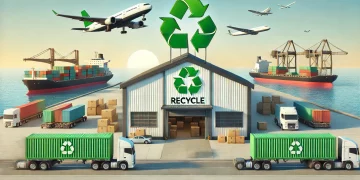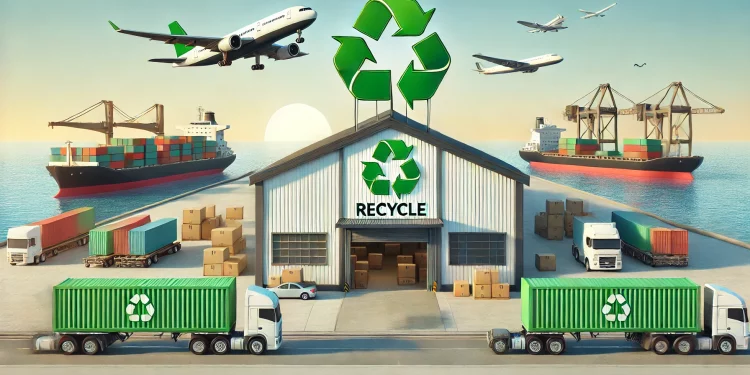The Challenge of Energy Dependency
Logistics remains heavily reliant on fossil fuels, particularly in transportation and warehousing. Road freight alone contributes approximately 7% of global CO₂ emissions, making the industry a key player in the fight against climate change. However, this dependency creates several challenges:
- Economic Vulnerability: Volatile oil prices and geopolitical tensions disrupt energy costs and supply chains.
- Regulatory Pressures: Carbon taxes and emission reduction mandates are increasingly stringent, forcing companies to adapt or face penalties.
- Consumer Expectations: Customers demand eco-friendly practices, pressuring companies to adopt greener solutions to maintain market share.
Strategies for Renewable Energy Adoption
To tackle these challenges, logistics companies are exploring innovative strategies to integrate renewable energy into their operations:
- Electrification of Transport:
- Electric vehicles (EVs) are being adopted for freight and last-mile deliveries.
- Companies like Amazon and DHL are integrating EV fleets, supported by government incentives and tax credits.
- Renewable Energy for Facilities:
- Warehouses and distribution centers are installing solar panels and wind turbines to power operations.
- These initiatives lower energy costs and appeal to environmentally conscious stakeholders.
- Sustainable Fuels for Heavy Transport:
- Biofuels and hydrogen are emerging as alternatives for sectors like aviation and maritime, where electrification remains challenging.
- Digital Optimization:
- Advanced technologies like AI and IoT are streamlining operations to minimize energy use and emissions.
Benefits of a Sustainable Transition
Adopting renewable energy and sustainable practices offers a range of advantages for logistics companies:
- Regulatory Compliance: Meeting emissions standards avoids fines and enables smoother operations.
- Operational Efficiency: Optimized energy use reduces costs and improves resource management.
- Brand Reputation: Companies showcasing eco-friendly practices attract customers and investors.
- Resilience: Diversifying energy sources ensures greater adaptability to market and environmental changes.
Overcoming Transition Barriers
The path to sustainability is not without obstacles:
- High Initial Costs: Implementing renewable infrastructure and transitioning fleets require significant investment.
- Technological Constraints: Advanced technologies like hydrogen fuel cells are not yet scalable for widespread use.
- Supply Chain Complexity: Coordinating green initiatives across global supply chains demands collaboration among diverse stakeholders.
Actionable Steps for Implementation
Logistics companies can accelerate their sustainability journey through the following measures:
- Set Clear Sustainability Goals: Define and measure emissions reduction targets.
- Invest in Renewables: Transition facilities and fleets to clean energy sources.
- Leverage Technology: Use AI and data analytics to enhance energy efficiency.
- Collaborate with Stakeholders: Work with suppliers, governments, and industry partners to align on green initiatives.
- Train Employees: Equip teams with the skills to implement and maintain sustainable practices.
Conclusion
The energy transition is no longer optional—it is an essential step for the logistics and supply chain industry to ensure long-term success. Embracing renewable energy and sustainability not only reduces environmental impact but also enhances resilience, operational efficiency, and market competitiveness.
As companies take these proactive measures, they are not only safeguarding their future but also contributing to a greener, more sustainable global economy. The logistics sector has the potential to lead this transformation and set an example for other industries to follow.























